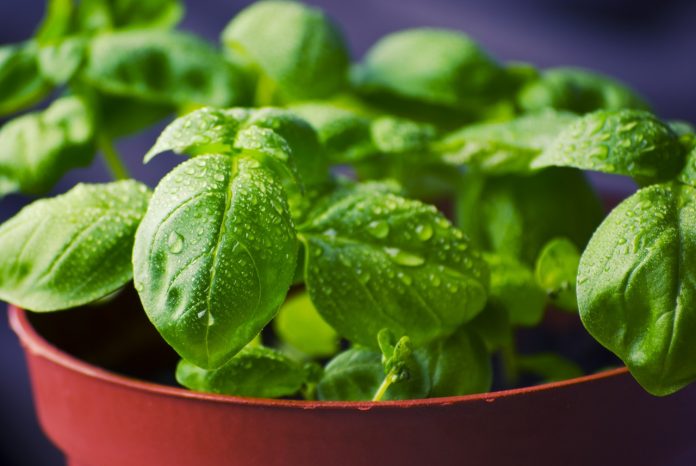Basil, scientifically known as Ocimum Basilicum and commonly known as great basil, is a culinary herb from the Lamiaceae (mints) family with anti-inflammatory, antioxidant, immune-booster, and pain-reducer properties. Basil is a common fragrant herb that is frequently used to add flavor to a range of recipes, but it may surprise you to learn that it has a number of health advantages, including immunity-boosting characteristics.
Basil seeds or essential oil have been shown to help prevent a wide range of health problems, making it one of the most important medical herbs available today. Basil contains vitamin A, C, E, K, and Omega 3 fatty acids, as well as cooling properties. Copper, Calcium, Manganese, Phosphorus, Zinc, and Potassium are among the minerals found in it. Basil is an ancient Ayurvedic plant that has been shown to have anti-inflammatory, antioxidant, immune-boosting, pain-reducing, and blood vessel-protecting properties.
This plant also includes cooling properties, making it ideal for summer use. It cleanses the body and regulates the body’s temperature. Basil also contains antioxidant-rich volatile essential oils, which are hydrophobic, which means they don’t dissolve in water and are light and small enough to travel through the air and into the pores in our skin. Basil’s volatile essential oil is what gives it its distinct aroma and flavor, but it also has some powerful medicinal powers.
Basil seeds were also known as Tukmaria seeds in Ayurveda’s lengthy history. These seeds may assist to improve intestinal health, increase fiber intake, lower blood sugar, aid in weight loss, and lower cholesterol. Basil comes in over 60 different types, with sweet basil being one of the most popular. The leaves of the herb are rounded and often pointy. Basil is a bright green plant with touches of purple or crimson in its leaves. It adds color and flavor to a variety of recipes.
Many cooks use basil to thicken their desserts rather than using an artificial/ harmful powder. People sometimes can’t tell the difference between Chia seeds and basil seeds. To be clear, basil seeds are larger and have a duller color. These herbs are used in a variety of recipes to add a refreshing element to sweets, drinks, and fruit juices, as well as to beat the summer heat.
Try this easy-to-make recipe for better digestion, weight reduction, and immunity:
*2 tsp basil seeds (sabja) + 1/2 liter water + 10 crushed mint leaves
*1/2 tsp cinnamon powder + A pinch of sendha salt (pink Himalayan salt)
*Or add organic honey for a sweeter version.
*In a large mixing bowl, combine all of the ingredients and drink.
This recipe will assist in the removal of toxins from our bodies, leaving us feeling light and healthy.
Apart from this, if you are interested to know about Ghee benefits, Shadowhunters season 4, Poldark season 6, Good Place season 5, Passeios em Bonito, Empresa Desentupidora, tjmaxx credit card login, Madison beer net worth, Gravity Falls season 3, Hunter x Hunter season 7, Marvelous Mrs. Maisel Season 4, Bloodborne 2, Derry Girls season 3, highest paid CEO, and, Bhushan Kumar net worth, you can follow our Entertainment and Business category.














![Technical Aspects of 844 Area Code in 2024 [Detail Guide] 844 Area Code](https://articleify.com/wp-content/uploads/2024/01/844-Area-Code-150x150.jpg)














